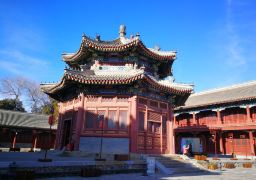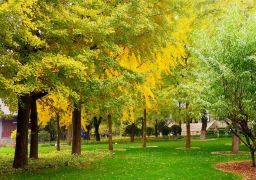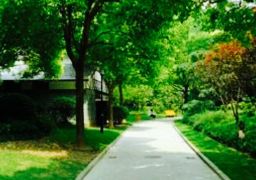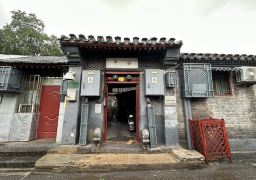In the midst of a bustling urban environment, there lies a tranquil and antique haven, nestled within the peaceful and serene ambiance of a traditional Chinese quadrangle compound. Here, one can indulge in the slow brewing of tea with exquisite tea sets and superior quality tea leaves, enjoying the ‘tea art of tranquility and courtesy’ amidst elegant silk and bamboo music and a rich tea culture atmosphere.
This place is also ideal for making friends over tea, discussing historical matters, engaging in academic explorations, artistic exchanges, and contemplating various themes of life’s gains and losses, all within a harmonious and peaceful setting. This is the Baoshan Palace Tea Culture Museum in Chongqing, a sanctuary for all tea lovers and those who respect tea, creating a refined and leisurely environment to purify the soul. It is located at 128 Zhongzheng Street, Chongqing. Originally a century-old Taoist temple in Cijin Kou, constructed during the Qing Dynasty, its architectural methods align with Taoist concepts of Yin and Yang and the Five Elements of ‘Metal, Wood, Water, Fire, Earth’. The main entrance of Baoshan Palace is not in the central axis of the temple but is oriented towards the southeast, facing the Jialing River (symbolizing the Taoist belief that water can overcome fire, which is detrimental to wooden structures). This unique feature has allowed the compound to escape numerous calamities and remain well-preserved to this day. During the Anti-Japanese War, it was transformed into Jialing Primary School, where Nobel Prize winner in Physics, Samuel C.C. Ting, studied in 1976. Now, it has been converted into a tea culture museum showcasing the local characteristics of Chongqing’s mountain city. To allow visitors to experience culture and art while visiting the Cijin Kou ancient town, the Propaganda Department of Shapingba District Committee and the District Cultural and Tourism Bureau have specially planned and organized performances at the Baoshan Palace Tea Culture Museum. On Mondays, Sichuan Opera performances are organized under the banyan tree, where you can sit on rattan chairs, sip tea, and enjoy the opera, experiencing the ‘old Chongqing’ flavor. On Wednesdays, there are folk music performances where you can appreciate many classic tunes, feeling the leisure and comfort of the ancient town. On Fridays, citizens and tourists can enjoy storytelling and quyi performances. The museum is open from 10:00 to 21:00 every day.Baoshan Palace Tea Culture Museum
In the midst of a bustling urban environment, there lies a tranquil and antique haven, nestled withi[...]









